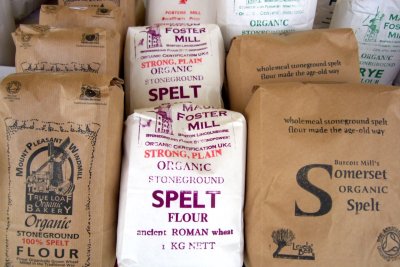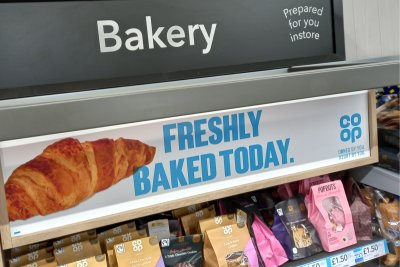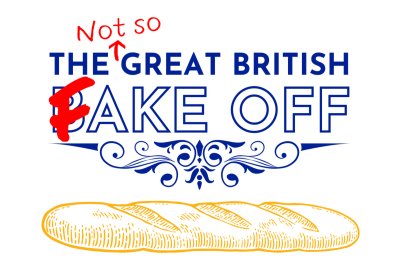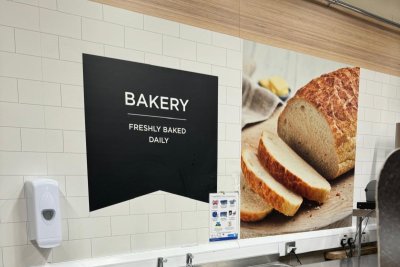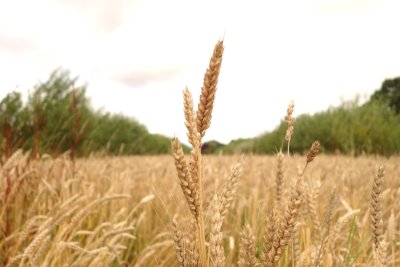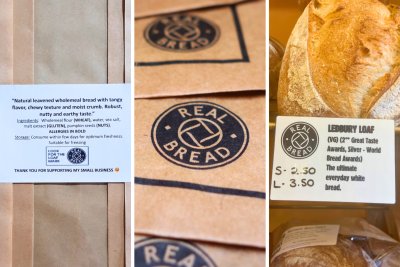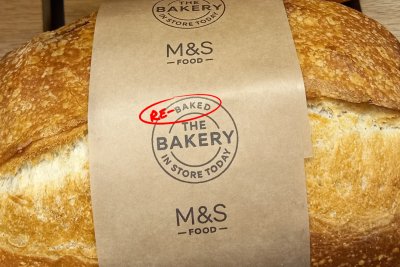 Rustic? Artisinal?. Copyright: Hovis (fair usage)
Rustic? Artisinal?. Copyright: Hovis (fair usage)
Following a four-month investigation, on 28 February 2024, the Advertising Standards Authority (ASA) published its ruling on a complaint by the Real Bread Campaign about Hovis advertisements for ‘Rustic Bloomers’ in the company’s ‘Bakers Since 1886’ range.
The Campaign believes that use of the following claims in the ads were misleading and could not be substantiated by Hovis:
- rustic, authentic and traditional
- artisanal-inspired
- no artificial preservatives
The ASA Council chose not to uphold any element of the complaint.
Real Bread Campaign coordinator Chris Young said:
‘We believe that this is another case of an industrial dough fabricator appropriating the language of Real Bread making to market fundamentally different products made by fundamentally different means.'
‘Shoppers need clear, honest information in order to make better-informed choices. When corporations use language like 'artisan' or ‘authentic’, they are implying the product is produced to better standards. In our view people are having the wool pulled over their eyes, which is made even worse when they're being charged higher prices for supposedly ‘premium’ products that are arguably little different from other industrial loaves.’
In its ruling, the ASA stated its belief that 'consumers would understand that the [industrial dough products] had been mass-produced, we considered that the claim was not misleading.'
The Real Bread Campaign asks: is the ASA effectively saying that an industrial dough fabricator can claim what it likes because, the ASA believes, people supposedly must know it's not true and, therefore, won't/can't be misled?
The Real Bread Campaign’s response
Ahead of sending its draft recommendation to the ASA Council, on 5 February the ASA investigations team sent a copy to the Campaign.
On 9 February the Campaign replied:
‘Thank you for sending the ASA’s draft recommendation but we cannot agree with it.
Not traditional, rustic or authentic
When a well-known (and, by some people, presumably trusted) company advertises a product using the words rustic, traditional and authentic, how can it be anything other than utterly misleading if the product and process of its modern industrial manufacture is so far removed from those qualities? Is this not a clear example of extended passing off?
In the context of this ad campaign, we believe that the average person would understand:
- traditional to encompass all ingredients and processes, not just shape and a bit of starter culture in the mix.
- rustic to mean more than just ‘a bit rough looking’.
- authentic to refer to the product as a whole (including the process by which it was made), rather than merely its shape and a sprinkling of cut grains on top.
It is telling that, in its defence, the company repeatedly admits to the superficiality of its claims, but is the ASA effectively saying: ‘we’re happy for Hovis to make them because we think most people know that these products are fundamentally not rustic, traditional or authentic?’
The Oxford Dictionary defines rustic as ‘made in a plain and simple fashion’. This does not apply to the complex and additive-laden processes of industrial dough fabrication. Shoppers don’t necessarily think that a product sold at supermarkets in plastic bags must have been made using industrial processes and additives, especially when the words traditional, rustic and authentic are used to market it.
The recipe on the side of the Hovis Granary flour bag comprises flour, water, butter, sugar, salt and yeast. It does not call for the cut wheat and rye, E472e, palm oil, E300, soya flour etc. used in manufacturing the advertised product. Has Hovis published an inauthentic, non-traditional recipe? Presumably not, indicating that the cut grains are not necessary for ‘an authentic Granary finish’ and that those extras are not used in an authentic Granary loaf.
Hovis stating that the Food Standards Agency has withdrawn the government’s ‘Criteria for the use of the terms fresh, pure, natural etc. in food labelling’ is not correct. Despite the Real Bread Campaign’s assertion that the 2008 version needs to be updated and improved, it is still the current official guidance published on the FSA’s website: www.food.gov.uk/sites/default/files/media/document/markcritguidance.pdf
Not artisanal
When will the ASA stop allowing companies to get away with using weasel words like ‘inspired’ to profit from the marketing value of terms such as ‘artisan’ when there is no substantive correlation with the product being advertised?
Artificial preservative
Food spoilage does not always involve microorganisms. It also results when ‘…chemical, or physical changes occur, rendering the food product unacceptable to the consumer.’
Food preservation is, therefore, not necessarily a matter of eliminating or inhibiting the growth of microorganisms. Britannica notes: ‘Preservatives used to maintain moisture and softness in baked goods are known as antistaling agents (e.g., glyceryl monostearate). These substances are thought to act by preventing water loss from starches.’
These Hovis products are made using diacetyl tartaric acid esters of mono- and diglycerides of fatty acids (also known as DATEM and E472e) which has an anti-staling effect that prolongs the softness, therefore the shelf life, of baked goods. DATEM’s preservative properties are used by additive manufacturers and suppliers in their marketing.
For example: ‘These mono- and diglycerides serve various functions in the food industry, including emulsification, improving texture, and extending shelf life.’
Is the ASA intent on maintaining the position that Hovis’ ‘no artificial preservatives’ claim isn’t misleading, on the grounds that E472e is designated as an emulsifier, and choosing to disregard the anti-staling, shelf-life extending, preservative properties that this artificial additive has and functions it serves?
Please review the case and your recommendation.’
On 14 February, the ASA investigations team replied: ‘We have carefully considered your comments, however we have not changed our recommendation that the ads did not breach the Code for the reasons previously set out.’
The ASA did, however, make a correction as a result of the Campaign’s call for a review: ‘One of your comments was that the FSA’s Guidance had not been withdrawn, in response to Hovis saying that it had been. Thank you for drawing our attention to its current location online. We have amended the response section so that it no longer states that the guidance is withdrawn.’
See also
- Hovis ‘wholemeal’ case referred to government
- Big brand sourfaux exposed
- Questionable loaf advertising: An uphill struggle
- White flour and up to 26 items on industrial wholemeal loaf ingredient lists
- Advertising Standards Authority failing to protect consumers says the Real Bread Campaign
- As good today as it’s always been?
To find cases involving other industrial dough fabricators, you can use the search facility on the Real Bread Campaign website.
Real Bread Campaign: The Real Bread Campaign finds and shares ways to make bread better for us, better for our communities and better for the planet. Whether your interest is local food, community-focussed small enterprises, honest labelling, therapeutic baking, or simply tasty toast, everyone is invited to become a Campaign supporter.
Sustain
The Green House
244-254 Cambridge Heath Road
London E2 9DA
020 3559 6777
sustain@sustainweb.org
Sustain advocates food and agriculture policies and practices that enhance the health and welfare of people and animals, improve the working and living environment, promote equity and enrich society and culture.
© Sustain 2024
Registered charity (no. 1018643)
Data privacy & cookies

